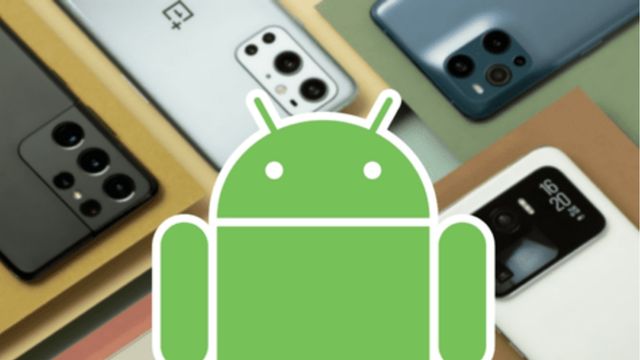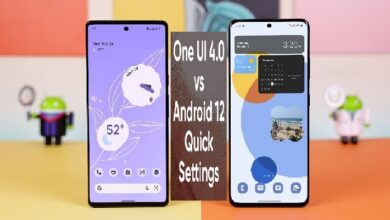Android Smartphones will be More Powerful than iPhones in 2023

Android smartphones will be more powerful than iPhones in 2023. On the AnTuTu benchmark, the MediaTek Dimensity 9200, a new chip made for Android smartphones, did better than the potent Apple M1. The most recent Android smartphones ought to be quite powerful by 2023.
On November 15 during a conference, Qualcomm is expected to announce the Snapdragon 8 Gen 2 processor, while MediaTek is also slated to shortly release its newest high-end chip, the Dimensity 9200. The chip was already discernible on the AnTuTu benchmark before its introduction.
Dimensity 9000, a 4 nm chip, was first unveiled by MediaTek last year. Therefore, we anticipate that it will once more be the first to unveil its new chip in the month after. Remember that the original Dimensity 9000 was replaced by the overclocked Dimensity 9000+ last summer? Well, we now know more about that device’s replacement.
Some Android Smartphones will be More Powerful than iPhones and Apple Macbook M1 IN 2023
According to leaker Digital Chat Station on the Chinese social media platform Weibo, the Dimensity 9200 has already finished AnTuTu with a score of 1,266,102 points. Compared to the Dimensity 9000 from the previous year, that is about 20% greater. It frequently succeeded in earning somewhere close to 1,050,000 points.
The Dimensity 9200 even outperforms Apple’s M1 processor with this rating. It is present in both the American juggernaut’s Mac laptops and the iPad Pro 2021. Verified AnTuTu data indicates that the latter receives “only” 1,251,547 points. The processor in the most recent iPad Pro M2, which was introduced a few days ago, doesn’t seem to have been tested yet, though. We think it’ll be the same as before.
The test also reveals that the chip’s temperature has only risen by 36 degrees. This means that it will be able to keep the smartphones it is using at a comfortable temperature. The 4 nm manufacturing technology used by TSMC will benefit the next Snapdragon 8 Gen 2 as well. It is in charge of this outstanding heat control. It will first run on the Xiaomi 13, the OnePlus 11, and the upcoming Galaxy S23.
Many of the top Android phones released in 2022 contain Qualcomm Snapdragon 8 Gen 1 chipsets (or the Plus update), and there are rumors that its successor, which is expected to offer a major performance increase, may launch before the year is out.
According to trustworthy informant Digital Chat Station(opens in new tab) (via Android Central(opens in new tab)), the Snapdragon 8 Gen 2 will include an “ultra-high frequency variant” that can operate at clock rates of up to 3.4-3.5 GHz (compared with the 3.2 GHz we have today).
However, there will be greater performance improvements in terms of graphics, improvements that may outperform the Apple A16 Bionic CPU found in the new iPhone 14 Pro and the iPhone 14 Pro Max in terms of graphics performance.
The A16 Bionic chip offers extremely high levels of performance, so the assertion that the Snapdragon 8 Gen 2 could do even better – in some phone tasks at least – is undoubtedly a bold one that we are unable to verify at this time.
Remember that performance of smartphones depends on more than just the speed of the chipset that powers everything. Additionally, crucial factors include the effectiveness of the program coding, the quantity of RAM that is accessible, and thermal management.
One asset that Apple often emphasizes when touting its performance is that it controls the whole software and hardware design process and doesn’t rely on outside chip manufacturers.
On November 15–17, Qualcomm is hosting the Snapdragon Summit, where we hope to learn everything there is to know about the next chipset and its features. The impact on the 2023 Android flagships’ speeds should then be considerably clearer to us.
Analysis: which phones will get the upgrade?
The introduction of the Snapdragon 8 Gen 2 will be crucial because, while many phone users won’t be aware of the type of processor that’s inside their handsets, the majority of us care about how quickly or slowly our smartphones operate.
The Samsung Galaxy S22, Samsung Galaxy Z Fold 4, Xiaomi 12 Pro, OnePlus 10 Pro, Sony Xperia 1 IV, and other smartphones running the Snapdragon 8 Gen 1 provide some indications as to which models might receive its replacement.
The OnePlus 11 might be among the first devices to receive the Snapdragon 8 Gen 2 processor. We anticipate that the phone will launch in the first few months of 2023.
The introduction of the Snapdragon 8 Gen 2 will be crucial because, while many phone users won’t be aware of the type of processor that’s inside their handsets, the majority of us care about how quickly or slowly our smartphones operate.
Once 2023 arrives, the Samsung Galaxy S23 should follow soon after. According to rumors, the phone will be available in all areas with a Snapdragon chipset, most likely the Snapdragon 8 Gen 2.
- How to Turn Android Phone into iPhone Like Device
- Google Chrome update for Android; here’s what it brings
- How to Use Passkeys in Google Chrome and Android
- Sony Xperia Pro-I Full Specifications
Conclusion
In comparison to the powerful Apple M1, the new MediaTek Dimensity 9200 chip for Android smartphones performed better. Before its release, the chip was already observable on the AnTuTu benchmark.
On November 15, Qualcomm is anticipated to reveal the Snapdragon 8 Gen 2 CPU. The Qualcomm Snapdragon 8 Gen 2 chip is anticipated to provide a significant performance improvement over the Snapdragon 801 CPU. It will have an “ultra-high frequency version” that can run at 3.4–3.5 GHz clock rates (compared with the 3.2 GHz we have today).
The Snapdragon 8 Gen 2’s release will be important because many phone users are concerned with how quickly or slowly our smartphones run. The Xiaomi 12 Pro, Samsung Galaxy Z Fold 4, Samsung Galaxy S22
Which series is best for iPhone?
The iPhone 14 Pro Max is the greatest iPhone this year overall. It sounds complicated, but for good cause. The largest iPhone 14 model, at 6.7 inches, is packed with the newest features available from Apple.
Are iPhones better than Android?
However, in general, iOS devices outperform most Android phones at similar price points in terms of speed and smoothness. For instance, an iPhone 14 starts at $799 MSRP and can operate almost as well as the most advanced iPhone. Even the inexpensive iPhone SE performs admirably.






